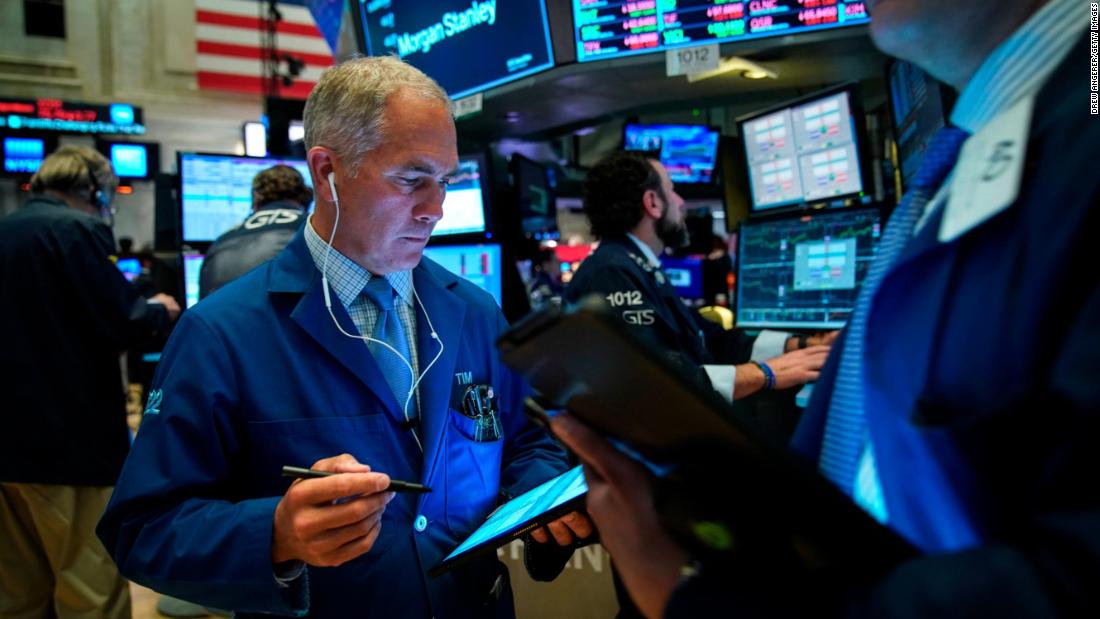
Stocks rose solidly at the open Tuesday. The Dow (INDU) was up 100 points, coming off its worst day since January 3. The S&P 500 (SPX), was up 0.4% and the Nasdaq (COMP) up 0.5%. European stocks are also posting solid gains. Safe haven assets, like gold, are retracing their gains from over the past few weeks.
It's not yet clear if this is a bottom or a "dead cat bounce" -- a temporary rebound in the middle of a steep market downturn that isn't really based on anything.
Even if stocks once again retreat later today or this week, they'll probably find a floor eventually.
US economic growth remains strong, and, more importantly, stronger than that of its peers. Overall, the US economy is less reliant on global growth than those of Europe or even emerging markets. Although Wall Street didn't like the escalation of tensions between China and the United States over the past days because a trade war would be bad for everyone, it would be least bad for the United States.
"The market continues to be dominated by trade-related headlines, but at some point soon, tweets and headlines just aren't going to cut it, and investors are going to demand concrete results," said Paul Hickey of Bespoke Investments.
President Donald Trump tweeted earlier this morning that the United States had the upper hand in negotiations because it buys fewer goods from China than vice versa. He also said "when the time is right we will make a deal with China."
The trade war can't last forever. China and the United States' economies are too intertwined. Wall Street believes that both Washington and Beijing are motivated to find an agreement as it would be mutually beneficial.
Trump said he would meet with Chinese Premier Xi Jinping at the G20 summit in Japan next month. Analysts are also still waiting to hear whether there will be tariffs on European auto imports.
Still, that means the volatility-inducing trade headlines won't go away anytime soon. A trade war that lasts longer than expected could lead markets to revert back to last year's theme: extreme volatility.
This recent stock market shock was large, suggesting losses could continue for a while, said Nordea Asset Management senior macro strategist Sebastien Galy in a note.
The threat of repercussions of the China-US trade war will likely continue to be the dark cloud over financial markets until Washington and Beijing agree a deal.
Continuous and rising tariffs could weigh on the Chinese economy, and in turn they could hurt European and emerging markets, which are highly reliant on exports and therefore global growth.
At some point, conditions would be bad enough to also weigh on the US markets, because American businesses require a healthy end markets to grow earnings.
For US stocks "to be on a sustainable path, we needed earnings to pick up and hence growth led by a tentative recovery in China, EU and a very decent US. Two of these legs are now expected to disappoint," said Galy. In a prolonged trade war, neither China nor Europe should be expected to grow rapidly.
But that was also true just a few weeks ago, when the S&P and the Nasdaq repeatedly hit record highs.
So whether the market will rally from here or continue to head south is anyone's guess. But the push and pull of a healthy economy and the trade war will reach equilibrium at some point.
No comments:
Post a Comment